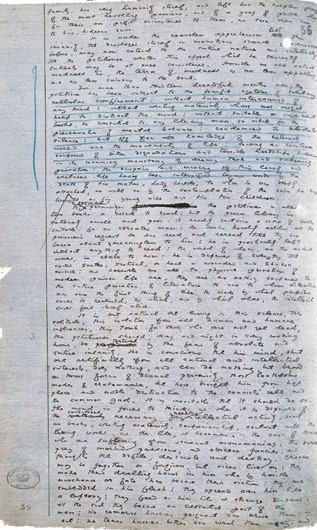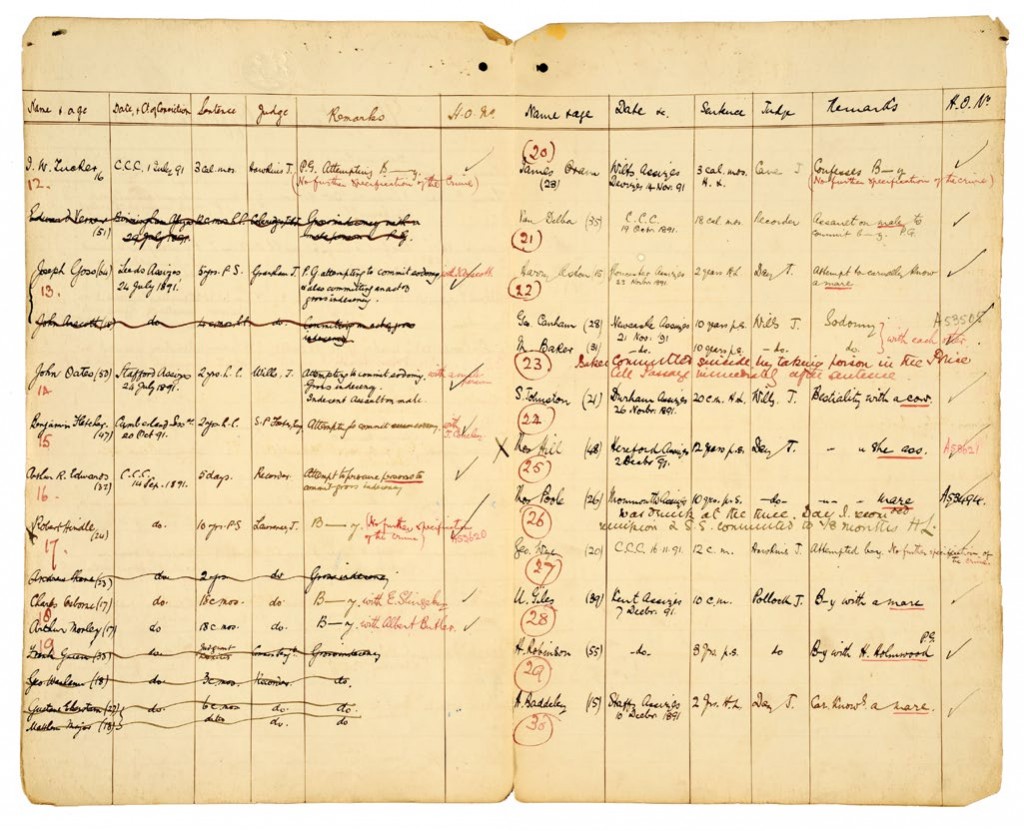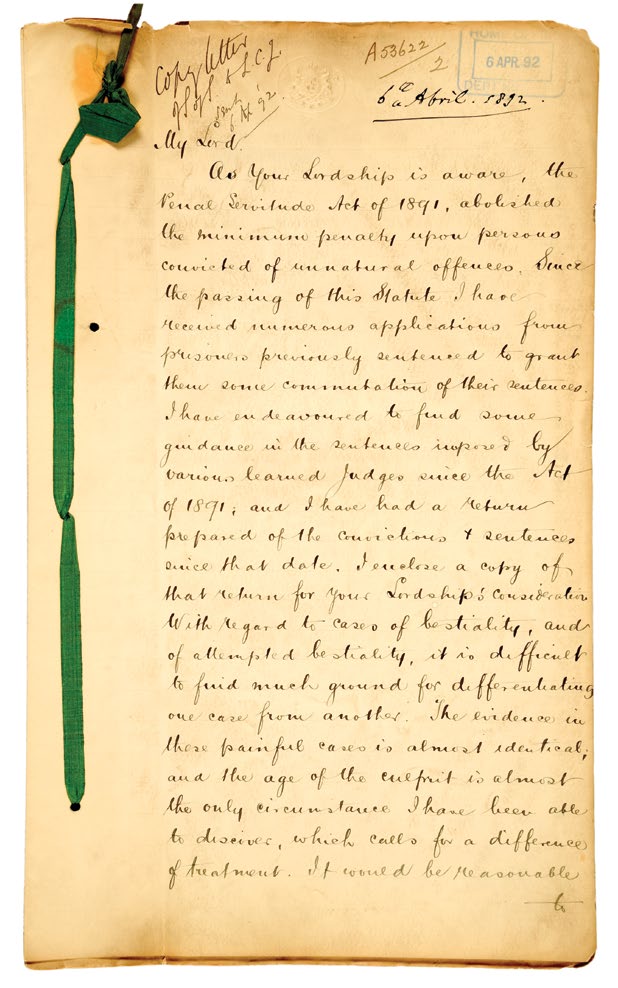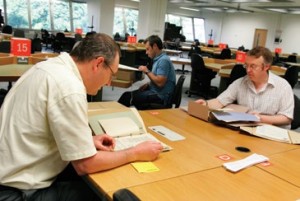 The National Archives holds the records of British government containing 1,000 years of history, from the handwritten volumes of Domesday Book to digital records created in the last 30 years. Our collection of over 11 million historical government and public records is one of the largest in the world. Hidden within our collection is a wealth of diverse histories including those relating to the LGBT community.
The National Archives holds the records of British government containing 1,000 years of history, from the handwritten volumes of Domesday Book to digital records created in the last 30 years. Our collection of over 11 million historical government and public records is one of the largest in the world. Hidden within our collection is a wealth of diverse histories including those relating to the LGBT community.
For a large proportion of modern British history, homosexuality has been treated by the state as either criminal or a psychiatric disorder, but always as a danger to a perceived ‘normal’ society. The state has played a major role in repressing, controlling and censoring the lives of lesbian, gay and bisexual people and paradoxically, these attempts at suppression have generated a rich history of experiences and official attitudes towards homosexuality which are told in the documents we hold.
The National Archives is working to move LGBT history, along with other minority histories, into the mainstream of historical research and debate within our work. Our collection gives a unique insight into how government interacted with and viewed LGBT people through history and we work hard to connect this with other relevant collections to provide a balanced historical narrative. For more information visit: The National Archives
Our LGBT delegate archives
Homosexual acts between men were a crime from the sixteenth century until the 1960s in Britain. The National Archives holds some records of the convictions of men tried for “indecent acts” or “gross indecency” and subjected to humiliating trials and punishments prior to decriminalisation, each one an essential part of building an understanding of gay history in the public records. Selected here are two extracts from our collection telling two very different stories from criminal files.
 |
 |
Oscar Wilde’s Petition
Oscar Wilde’s petition after 18 months in jail is one of the most passionate and personal glimpses in to his experience of imprisonment, having been convicted of “gross indecency” in 1895. The National Archives holds many files on the trial and Wilde’s time in jail, capturing the effect such experiences had on the men involved. Wilde describes his experience of jail as, “a system so terrible that it hardens their hearts whose hearts it does not break, and brutalises those who have to carry it out no less than those who have to submit to it.” He pleads for “medical science and humane treatment” rather than the prison life that was making him ill. Wilde was eventually released in 1897, but the damage to his health from his time in jail was great and he died in 1900 aged 46.
 |
 |
 |
 |
TNA: PRO HO 45/24514 - Excerpt of Oscar Wilde’s first petition to the Home Secretary
 |
 |
 |
Canham and Baker Records
Following the Penal Servitude Act in 1891 which abolished the minimum sentence for the crime of sodomy, a review of cases and lengths of sentences is recorded in our files along with those for bestiality. In the list is the case of G. Canham and M. Baker, convicted of “sodomy with each other” and given a 10 year sentence. Noted underneath in an off-hand fashion is the remark, “Baker committed suicide by taking poison in the Police Cell Passage immediately after sentence.” Later in the file, a little more information is given about the case, reporting that Baker was a barman, aged 31 and that the key witness in the case was suspected of trying to get Baker “out of the way” in order to “intrigue” with his wife. This tragic case of an otherwise unknown man is recorded in the files alongside high profile men such as Wilde, illustrating the importance of such records in telling a fuller story of gay history.
 |
(Clockwise - Documents on repository shelving at The National Archives; Staff member retrieves files from The National Archives; Researchers at The National Archives; Library at the National Archives)
 |
 |
 |
- Migrating Archives: Participating Archives
- Adarna Food and Culture Restaurant
- The Australian Lesbian and Gay Archives
- The Fonds Suzan Daniel
- GALA
- Gay, Lesbian, Bisexual Transgender Historical Society
- Glasgow Women’s Library
- Hall-Carpenter Archives
- Il Cassero and Centro di Documentazione
- Labrisz Lesbian Association
- The Leslie Lohman Museum
- The National Archives
- rukus!
- Virginia Commonwealth University Libraries